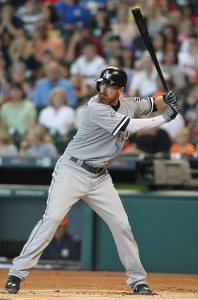As the United States continues to unroll policy changes with regard to interactions between American and Cuban businesses and citizens, the latest move could have profound implications for the way that the island’s famed baseball players make their way to MLB. As Ben Strauss of the New York Times explains, the new rules — which start today — it will be permissible for major league teams (like any other employer) to hire Cuban citizens.
Under the existing scheme, Cuban players have been forced to endure a lengthy and often dangerous process not only to make it out of Cuba, but to become eligible to sign as free agents. While there are still many logistical and policy-related matters to be worked through before there is any kind of efficient exchange of talent between Cuba and the majors, yesterday’s announcement seems to remove a significant barrier from the process.
Indeed, the biggest immediate effect may be on Cubans who have already left the island and are currently waiting to reach free agency — which has previously required the establishment of residence in a third country in circumstances ripe for exploitation. In theory, those players — among them, Cuban legend Yulieski Gurriel, his brother Lourdes Gurriel, and veteran second baseman Jose Miguel Fernandez — can legally sign right now, so long as they are otherwise able to gain legal entry and work authorization, as would any other international player.
It’s likely, of course, that clubs will await some confirmation before proceeding; if nothing else, pursuant to baseball’s own rules, those players will still need to be declared free agents. Dan Halem, MLB’s chief legal officer, tells Strauss that the league is still studying the rules, and there could be a need for administrative changes before the flow of talent opens. Regardless of precisely how long it takes for the impact of the rule change to be felt, it holds out the promise of eliminating some of the worst byproducts of the convoluted prior system.
Standing alone, though, the new rules do not eliminate the incentive for defection for those ballplayers that remain in Cuba — though, presumably, they’d be able to defect directly to the United States or at least do so much more quickly. Working out a process for players still in Cuba, of course, will require more negotiation and the participation by the Cuban government. But with goodwill exchanges between MLB and Cuba seemingly proceeding nicely, it isn’t hard to imagine the parties in interest finding a way forward.

